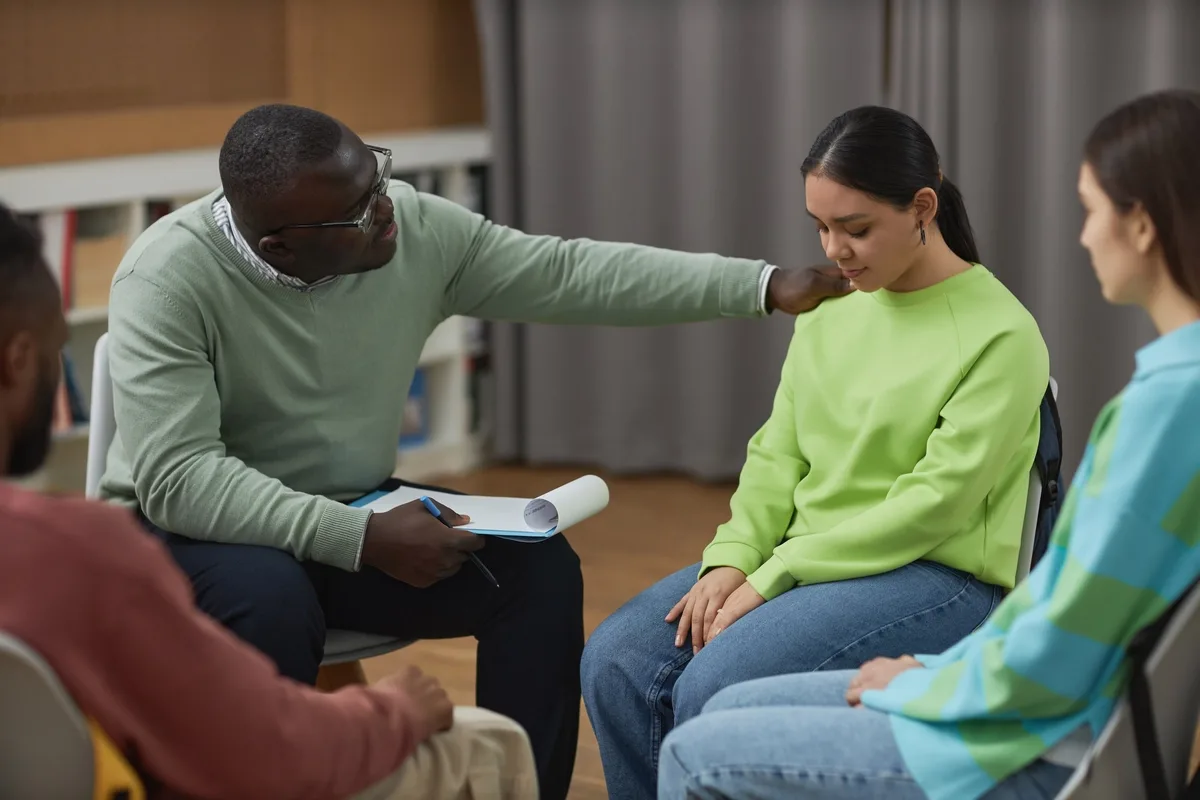24/7 Helpline:
(866) 899-221924/7 Helpline:
(866) 899-2219
Learn more about Medication-assisted Treatment centers in Bruce
Medication-assisted Treatment in Other Cities

Other Insurance Options

Holman Group

Amerigroup

State Farm

Molina Healthcare

ComPsych

Meritain

United Health Care

BlueCross

Premera

PHCS Network

Lucent

Kaiser Permanente

BHS | Behavioral Health Systems

Carleon
Beacon

Cigna

GEHA

Ambetter

BlueShield

Access to Recovery (ATR) Voucher
















































































































